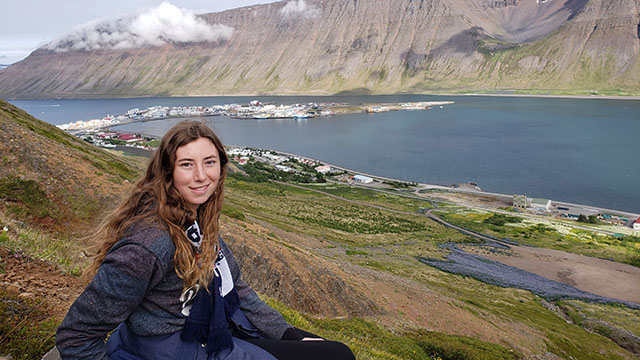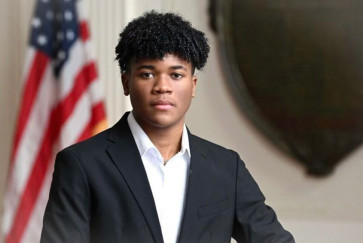When she graduated in spring, Claire Petersen had set her sights on the University of Cambridge in England, which boasts one of the most cutting-edge master’s programs in energy technology anywhere in the world.
“I knew I wanted to study energy technology, and I knew Cambridge was the path I wanted to take and needed to take,” said Petersen, who has a double major in economics and environmental engineering from the Weinberg College of Arts and Sciences and the McCormick School of Engineering. “I was all ready to go, and then came the pandemic.”
Petersen determined she should not move to England amid the global crisis unfurling. Still, undeterred, she was determined to find a way, which is when she reached out to Northwestern’s Office of Fellowships.
Now, four months later, Petersen is preparing for Cambridge, as well as the University of Edinburgh, where she will study carbon management, on a Marshall Scholarship. She will arrive in the UK two months before the country hosts the COP26 Climate Summit in Glasgow, Scotland, in November 2021.
Established in 1953 as a British gesture of thanks to the people of the United States for assistance they received under the Marshall Plan after World War II, the Marshall Scholarship is designed to train future leaders with a lasting understanding of British society and fortify the relationship between the two countries. In 2020, 1,180 students applied for 46 scholarships.
Energy and economics
Petersen discovered her passion and path while on a study abroad program in Iceland, a country powered almost entirely by geothermal and hydroelectric sources.
“They are experts on renewable energy and carbon storage, and they have this great view about how energy and economics should be coupled together,” Petersen said. “It was incredibly interesting to learn that the point where Iceland switched from developing to developed country was when they said we are not going to import anymore oil, we are going to focus on our own renewable sources. That energy independence gave them the ability to be economically stable. That’s the exact opposite of what we hear constantly in the U.S. about the ‘costs’ of renewable energy.”
One of so few women
She learned to weld as part of a Design Thinking and Communication (DTC) project, leading to recruitment by Northwestern Formula Racing and eventually the role of “chassis lead,” in which Petersen lead the team in charge of building the race car frame. She was one of only a handful of women on the team Petersen describes as an extended family.
In her senior year, Petersen was also the only woman out of approximately 12 students in an advanced econometrics class. While Petersen is all praise for Northwestern — particularly for the faculty members who worked to ensure she would not encounter any barriers in her academic pursuits — she said that being one of so few women in some of her courses was intimidating.
“Every time you speak in class you are always going to be representing your entire gender; getting a wrong answer means a lot more,” Petersen said.
She was scrambling to find something else to do this year when Mar Reguant, an associate professor of economics who specializes in energy, offered her a job.
“It’s better than being in Cambridge right now,” said Petersen, who is helping with two research projects, including one on carbon pricing in France and a second examining electricity markets in California. In addition to the incredible research opportunity, Petersen said the benefit of working with a woman in economic research, a field dominated by men, has been fortifying.
Beyond her pure fascination for the field, Petersen said she feels called to help address climate change.
“Climate change is going to touch every aspect of life, but the most severe negative impacts are not going to be felt by the wealthy of the world, they are going to be felt by developing countries and communities that are completely overlooked, and that’s wildly unacceptable,” she said.


